
Antje J. Baeumner is the Director of the Institute of Analytical Chemistry, Chemo- and Biosensors at the University of Regensburg and remains Adjunct Professor in her former home institution, the Dept. of Biological and Environmental Engineering at Cornell University in Ithaca, NY, USA. She is Editor of the Springer Nature Journal Analytical and Bioanalytical Chemistry (ABC) and President of the International Association of Environmental Analytical Chemistry (IAEAC). She was chair of the 2022 Gordon Research Conference on Nanotechnology for Agriculture and Food Systems. Her research is focused on the development of biosensors and microTotal Analysis Systems for the on-site detection of pathogens and toxins in food, the environment and for clinical diagnostics with special emphasis on the development of novel nanomaterials.

Luminescent sensors
Sergey M. Borisov received his Ph.D. degree in chemistry from the Herzen State Pedagogical University (St. Petersburg, Russia) in 2003. In 2004–2006 he worked in the group of Prof. Otto Wolfbeis at the University of Regensburg (Germany) as a postdoctoral research fellow. He joined the Institute of Analytical Chemistry and Food Chemistry at the Graz University of Technology (Austria) in 2006. After habilitation in 2017 he was appointed an associate professor at the same institute. His main research interests are in the chemistry of porphyrins and related compounds, synthesis and application of new luminescent dyes and inorganic phosphors in optical sensing, the use of luminescent micro- and nanomaterials in bioanalytical methods and application of optical sensors in life sciences and oceanography. Sergey Borisov has supervised and co-supervised 18 PhD students, has published 178 peer-reviewed publications that attracted ~9000 total citations (Scopus).

Emmenegger
Lukas Emmenegger received his PhD from ETH Zürich and has over 30 years of experience in research, engineering and teaching in the private sector and in public research institutions. Since 2012 he leads the Laboratory for Air Pollution and Environmental Technology at Empa. His main interest is combining measurements and transport modelling of anthropogenic air pollutants that are relevant to climate change and human health. This includes groundbreaking work in mid-IR laser spectroscopy using quantum cascade lasers (QCLs) for high-precision, real-time analysis of trace-gases. His group has pioneered many applications of QCL spectroscopy, especially in the field of greenhouse gases and their isotopes, including doubly substituted, so-called clumped, isotopologues. Lukas Emmenegger has contributed to over 150 research papers and is co-founder of two spin-off companies in the field of laser spectroscopy.

Swiss Milestones in Analytical Chemistry
Detlef Günther is full professor for Trace Element and Micro Analysis at the Department for Chemistry and Applied Biosciences (D-CHAB) at ETH Zurich. He received his Ph.D. from the Martin Luther University Halle-Wittenberg (Germany) and joined the Memorial University St. John’s (Canada) as Postdoctoral Fellow before joining ETH in 1995. His research in the field of Analytical Chemistry is focused on instrument and method development for trace and ultra trace element analysis and isotope ratio determinations using high spatial resolution laser ablation and inductively coupled plasma mass spectrometry. He has been the chair of the D-CHAB from 2010-2012. Furthermore, he served as Vice President for Research and Corporate Relation at ETH (2015-2020) and Vice President for Research (2020-2022) and has been responsible for research funding (national and international), platforms and research centers. In 2014 he became a member of the German national academy of science Leopoldina.

Köllensperger
Metallomics and the single cell
Univ. Prof. Dr. Gunda Koellensperger holds the chair for Analytical Chemistry at the University Vienna. Currently she is vice dean of the Faculty of Chemistry and vice president of the Austrian Society of Analytical Chemistry. She is an expert in methods based on mass spectrometry, multidimensional chromatography and stable isotopes with more than 190 publications. Her research envisages the development of innovative omics-type analytical tools in the interdisciplinary fields of metallomics and metabolomics research. In metallomics, the group develops quantitative high throughput methods for ultratrace analysis of elements and elemental species in biological samples. A major focus is on single cell analysis. By integrating mass cytometry, the ultimate goal is to assess the single cell ionome together with cell functionality/cell state.
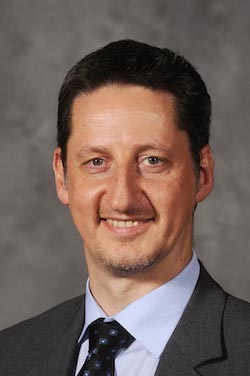
Professor Dr. Jörg P. Kutter received his B.S in chemistry in 1991, and his Ph.D. in analytical chemistry in 1995, both from the University of Ulm, Germany. Both theses focused on chromatographic and electrophoretic separation techniques. After graduation, he was a postdoctoral research fellow in the Laser Spectroscopy and Microinstrumentation Group at Oak Ridge National Laboratory (Oak Ridge, TN, USA) developing microchip-based analytical tools. In June 1998, he joined the Department of Micro and Nanotechnology (formerly, MIC) of the Technical University of Denmark (DTU) in Lyngby, Denmark. In 2006, he was appointed professor in experimental lab-on-a-chip systems at DTU. Since September 2013, Dr. Kutter is the Chair of Analytical Biosciences at the Dept. of Pharmacy at the University of Copenhagen. His research interests focus on the development of microfluidic devices for applications in the life sciences, and, particularly, in the pharmaceutical sciences. Dr. Kutter has extensive experience in leading scientific projects, has supervised and co-supervised 34 PhD students, has more than 140 international peer-reviewed publications and books/book chapters (h-index: 42 (Web of Knowledge)), and is involved in several international conference committees, advisory boards, and professional organizations.
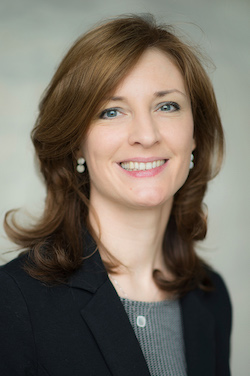
After her PhD at the University of Padua (Italy), Paola Picotti did postdoctoral research in the group of Ruedi Aebersold at ETH Zurich, where she developed targeted proteomic technologies based on mass spectrometry. In 2011, she was appointed Assistant Professor at the Institute of Biochemistry, ETHZ, and in 2017 tenured Associate Professor at the Institute of Molecular Systems Biology, ETHZ. Major contributions of the Picotti group include the development of structural proteomics technologies to probe in situ protein structural changes, characterization of the determinants of proteome thermostability, large-scale identification of protein-small molecule interactions, and the discovery of regulators of toxic proteins in Parkinson’s disease. Dr. Picotti was awarded the Latsis Prize, the Cotter Award of US HUPO, HUPO Discovery in proteomics sciences award, the SGMS award, the EMBO Young Investigator Award, the Friedrich Miescher Award, the Juan- Pablo Albar award of the European Proteome Association, ERC Starting and Consolidator grants, and the EMBO Gold Medal.

Kevin Plaxco
Kevin Plaxco, a Distinguished Professor at the University of California, Santa Barbara, holds appointments in the Department of Chemistry and Biochemistry, the Department of Engineering, and the Biological Engineering Graduate Program. Prior to joining UCSB in 1998 Dr. Plaxco received his Ph.D. from Caltech and performed postdoctoral studies at Oxford and the University of Washington. Dr. Plaxco’s research focus is on the physics of biomolecular folding and its engineering applications. A major aim of the group’s applied research is to harness the speed and specificity of folding in the development of sensors, adaptable surfaces, and smart materials. Dr. Plaxco has co-authored more than 240 papers and a dozen patents on protein folding, protein dynamics, and folding-based sensors, and is recognized by Thomson Reuters as one of the most highly cited chemists of the prior decade. He serves on the scientific boards of a half dozen biotechnology firms, several of which are commercializing technologies developed by his group, and has also written a popular science book on Astrobiology.

Uwe Sauer earned his MS and PhD in microbiology from the University of Göttingen. During his postdoc work on metabolic engineering in the chemical engineering lab of Jay Bailey in Zurich, he became interested in computational modelling of cellular behaviour and quantitative analysis of metabolic fluxes. In the late nineties, his research began to focus on quantitative understanding of interactions and regulation within complex microbial metabolic networks. For this purpose, research in the Sauer lab takes an interdisciplinary approach that combines quantitative experimentation and modelling to solve fundamental questions of how microbes coordinate their metabolism. His lab has pioneered the development of quantitative mass spectrometry-based methods for metabolomics, enabling rapid hypothesis generation on the molecular and functional operation of complex metabolic networks. The current research focus is on mapping metabolite-protein interaction networks and understanding the in vivo relevance of allosteric metabolite regulation. He is the recipient of the 2023 Simon-Widmer Award of the Division of Analytical Science of the Swiss Chemical Society.

Heinz Singer heads the research group of Environmental Analytics in the Department of Environmental Chemistry at the Swiss Federal Institute of Aquatic Science and Technology, Eawag in Dübendorf. For over 30 years, he has been driving the development of mass spectrometric methods for sensitive and selective detection of emerging contaminants in the water cycle. His research employs cutting-edge mass spectrometric methods to explore the occurrence and fate of organic pollutants in the aquatic environment. Heinz Singer is a pioneer in the application of high-resolution mass spectrometry (HRMS) for the screening of target, suspect, and non-target compounds. He is an active member of several HRMS expert groups and has co-organized conferences on non-target analysis for environmental risk assessment. He has co-authored 90 papers in peer-reviewed journals (H index 51). In addition to his research, he is involved in teaching at ETH Zürich and supervises MSc and PhD students. Currently, his research focus is on the development of transportable HRMS instruments for on-site analysis of target, suspect, and non-target compounds in water samples. His current key focus is on elucidating contaminant sources from households, agriculture, and industry using HRMS datasets with high temporal and spatial resolution.
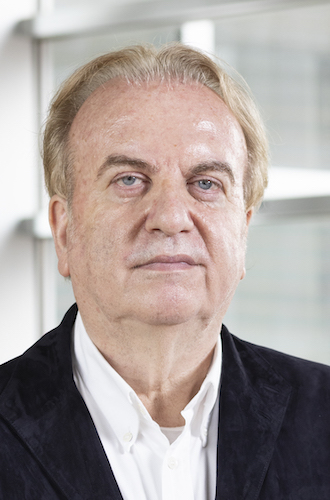
Full Professor IDAEA-CSIC, Spain. Since 2008-to date he is Director of the Catalan Institute for Water Research (ICRA-CERCA), Girona, Spain. From 2016 to date he is Professor at KSU, Riyadh and Professor at ZAFU, Hangzhou. D. Barceló has received the following awards: Doctor Honoris Causa by the Universities of Ioannina, Greece, in 2014 and by the Universities of Lleida, June 2021 and Almeria, Spain in May 2022, Recipharm Environmental Award, Sweden in 2012, Prince Sultan Bin Abdulaziz International Prize for Water (PSIPW), 5th Award on Water Management & Protection, Saudi Arabia in 2012 and Prize King Jaime I on the Protection of Nature from Generalitat of Valencia, Spain in 2007. He has co-supervised more than 65 PhD students. D Barceló expertise is on analysis, fate, risk and removal of emerging contaminants, nanomaterials and microplastics from water and on sewage epidemiology of drugs and proteins. Since 2010 he is ISI Highly Cited. Research.com ranked in 2023 D. Barcelo as 3rd and 23rd in environmental sciences and chemistry, respectively in the world. He is journal editor from 1990 to date of: STOTEN, GREEAC, TRAC, Methods X, CSCEE, and COESH. From 1993 to date he has edited 37 books.
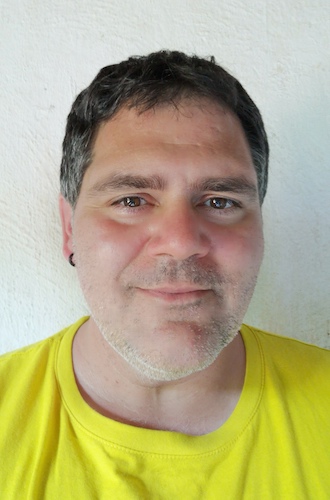
Jose Manuel Amigo
Jose Manuel Amigo obtained his PhD (Cum Laude) in Chemistry from the Autonomous University of Barcelona, Spain. He was a post-doctoral student (2007 – 2009) and then an Associate Professor (2010 – 2019) at the Department of Food Science of the University of Copenhagen, Denmark. In 2017 he was, at the same time, Guest Professor at the Federal University of Pernambuco, Brazil. He is now a Distinguished Professor at the Department of Analytical Chemistry of the University of the Basque Country, Spain, and a Research Professor of IKERBASQUE, The Basque Foundation for Science. Current research interests include hyperspectral and digital image analysis and the application of Chemometrics (i.e. Machine and Deep Learning). He has authored more than 180 publications and has given more than 60 conferences and courses at international meetings. Jose is an editorial board member of four scientific journals within chemometrics, pharmaceutical sciences and analytical chemistry. He received the “2014 Chemometrics and Intelligent Laboratory Systems Award” for his achievements in the field of Chemometrics and the “2019 Tomas Hirschfeld Award” in the field of Near Infrared Spectroscopy. He is editor of the book “Hyperspectral Imaging, Volume 32, Elsevier, ISBN: 9780444639776, In Data Handling in Science and Technology.

Ion exchange, desalting and salting in droplet microfluidics
Robbyn K. Anand is the Suresh Faculty Fellow and Carlyle G. Caldwell Endowed Chair in Chemistry at Iowa State University. Her group has developed methods for circulating tumor cell analysis, electrokinetic enrichment and separation of chemical species within water-in-oil droplets, and more sensitive bioanalysis at arrays of wireless bipolar electrodes. Prof. Anand also founded the Midwest Retreat for Diversity in Chemistry - an annual event aimed at the retention of underrepresented groups in the chemical enterprise.

Vibrational Spectroscopy for Process Understanding
Katherine Bakeev is an accomplished scientist and leader with broad knowledge and experience in product development, real-time spectroscopic measurements and chemometric data analysis for pharmaceutical drug development and chemical development processes and manufacturing. Business skills in developing international distribution network and support team to successfully grow the business. Recognized for innovative scientific contributions and development t to meet business needs and for leadership of cross-functional teams. Demonstrated planning, influencing and communication skills. Skilled trainer and technical writer with globally recognized expertise in vibrational spectroscopy (near-infrared, FTIR, Raman), applied chemometrics, and process analytical technology (PAT).

Structure Elucidation of Iron Chelators Produced by Microorganisms
Prof. Dr. Laurent Bigler is Adjunct Professor in the Chemistry Department at the University of Zurich (UZH). Since 2002, he’s head of the mass spectrometry and general analytics facilities of the Organic Chemistry and, since 2015, of the Chemistry department of the UZH. His group’s research interests focus on the development of methods based on UHPLC coupled to HR-MS/MS to elucidate the structure of, for example, drug and plant secondary metabolites and spider venom components. Where necessary, compounds of interest are isolated from biological materials, purified and their chemical structure confirmed by NMR spectroscopy. Current projects focus on elucidating the structure of bacterial siderophores, analyzing plant extracts used in traditional (Chinese) medicine, and steroid profiles in human and cattle samples related to reproductive cycle and treatment of infertility.

Spain
Susana Campuzano is Professor at the Analytical Chemistry Department of the Chemistry Faculty of the Universidad Complutense de Madrid (Spain) where she is currently Head of “Electroanalysis and Electrochemical (Bio)Sensors” (GEBE) research group. Her areas of interest include the development of affinity-based electrochemical bioplatforms with potential for multiplexed and/or multi-omics determinations in precision medicine and nutrition. She is Associate Editor in Electroanalysis and member of the Editorial Board of Analytical & Bioanalytical Chemistry, Talanta and Biosensors & Bielectronics: X.

Japan
Daniel Citterio received his doctorate from the Swiss Federal Institute of Technology (ETH) in Zurich, Switzerland. From 1998-2002, he was a postdoctoral researcher at Keio University with Prof. Koji Suzuki. Upon return to Switzerland, he worked as a researcher at ETH, before joining Ciba Specialty Chemicals Inc.. In 2006, he moved back to Keio University, where he became a tenured Associate Professor in 2009 and Professor in 2014. His research interests are the development of low-cost analytical devices for point-of-need applications, as well as (bio)chemical sensors in general. He serves as a co-Editor-in-Chief of the journal Sensors and Actuators B: Chemical, as well as on the Editorial Advisory Board of Analytical Chemistry and ACS Sensors.
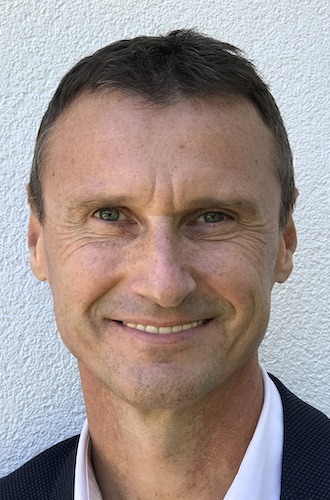
Gert Desmet has a Master’s degree and PhD in chemical engineering from the Vrije Universiteit Brussel (VUB), Brussels, Belgium, where he currently is a full professor in chemical engineering. His research mainly focuses on the miniaturization and automation of separation methods, as well as on the investigation and the modeling of flow effects in chromatographic systems. He also is an Associate Editor for the journal "Analytical Chemistry" and acts as the Deputy-director of the Solvay Institute for Chemistry.

Multimodal high throughput analysis using microdroplet arrays
Prof. Petra S. Dittrich is Professor for Bioanalytics at the Department of Biosystems Science and Engineering, ETH Zürich. She develops microfluidic devices for bioanalytical and diagnostic applications. Prof. Dittrich studied Chemistry at Bielefeld University (Germany) and Universidad de Salamanca (Spain), and conducted the PhD work at the Max Planck-Institute for Biophysical Chemistry (MPI Göttingen, Germany). She was postdoc at the Institute for Analytical Sciences (ISAS Dortmund, Germany). In 2008 she was appointed Assistant Professor at the Department of Chemistry and Applied Biosciences (ETH Zurich). For research stays, she visited the Cornell University (Ithaca, USA, in 2002) and the University of Tokyo (Japan, in 2005). She received among others awards the prestigious Starting Grant from the European Research Council (ERC, from 2008-2014) as well as the ERC Consolidator Grant (2016-2021).

Scientia Professor Justin Gooding is currently an National Health and Medical Research Council Leadership Fellow as well as a fellow of the Australian Academy of Science and the Australian Academy of Technology and Engineering and was previously an Australian Research Council Australian Laureate Fellow. He is the inaugural editor-in-chief of the journal ACS Sensors. He is the former founding co-director of the Australian Centre for NanoMedicine and the co-director of the New South Wales Smart Sensing Network.
He leads a research team of over 40 researchers interested in surface modification and nanotechnology for biosensors for medical applications, electrocatalysis and 3D cell printing. He has extensive colloborative experience with start-up companies and has been involved in the commercialisation of glucose biosensors, 3D bioprinters and an in vivo sensing platform for therapeutic drug monitoring.

Guillarme
Davy Guillarme holds a Ph.D. degree in analytical chemistry from the University of Lyon, France. He is now senior lecturer and research associate at the University of Geneva in Switzerland. He authored more than 320 journal articles related to pharmaceutical analysis. His expertise includes HPLC, UHPLC, HILIC, LC−MS, SFC, SFC-MS, multidimensional LC, analysis of proteins, mAbs and ADCs. He is an associate editor of Journal of chromatography B and editorial advisory board member of several journals (Trends in analytical chemistry, Journal of Chromatography A, Journal of Separation Science, LC−GC North America…). He was the recipient of the LC-GC emerging leader award in chromatography in 2013, the jubilee medal from the chromatographic society in 2018, and the international award of the Belgian society of pharmaceutical sciences in 2022.

Gundlach-Graham
Alexander Gundlach-Graham is an Assistant Professor of Analytical Chemistry at Iowa State University. At ISU, Alex’s research group focuses on the development and application of atomic mass spectrometry for the detection and quantification of nanoparticles and microparticles in complex matrices, such as environmental or biological samples. Much of Alex’s research centers on advancing single-particle inductively coupled plasma time-of-flight mass spectrometry (spICP-TOFMS) into a robust, high-throughput platform for particle analysis. Alex’s group explores new sample introduction designs, calibration strategies, nanoparticle classification approaches, and automated data processing schemes for spICP-TOFMS. This research is funded through an NSF CAREER award. Prior to joining the faculty at ISU, Alex earned his Ph.D. from Indiana University in 2013, and then moved to the ETH Zürich, at which he was a Marie-Curie postdoctoral fellow and an SNSF Ambizione research fellow.
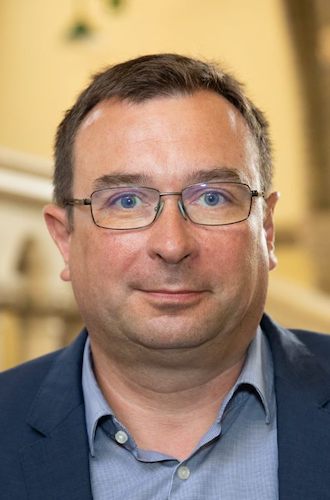
Robert
Gyurcsanyi
High affinity synthetic ligands for virus sensing
Róbert Gyurcsányi is the head of the Chemical Nanosensors Research Group and of the Department of Inorganic and Analytical Chemistry at Budapest University of Technology and Economics (BME). He received his PhD in Chemistry at the Technical University of Budapest, with further training at Duke University and PIDC (Taiwan). He moved to a postdoctoral fellowship in Biomedical Engineering at the University of Memphis and then to ETH Zürich before his return to BME in 2002. Dr. Gyurcsányi’s research focuses on chemical sensing applications of novel selective synthetic ligands (ionophores, molecularly imprinted polymers, aptamers, etc.) and solid-state nanopores. He serves from 2018 as co-Editor-in-Chief of the journal Sensors and Actuators B: Chemical.

Kruss
Near infrared imaging of nanosensors for biomedical applications
Sebastian Kruss received his Ph.D. in biophysical chemistry at Heidelberg University and the Max Planck Institute for Intelligent Systems (with Prof. Joachim Spatz). He then moved to the Massachusetts Institute of Technology (with Prof. Michael Strano), where he worked on carbon nanomaterials and their spectroscopy. After heading an independent research group at Goettingen University (2015–2020), he became professor of physical chemistry at Ruhr-Universität Bochum in Germany and group leader at Fraunhofer IMS. His research focuses on advanced photonics, fluorescence spectroscopy and microscopy, near infrared methods, novel materials, biosensors and cell biophysics.

Engineering biology to bring diagnostics to low resource areas
Professor Lisa Hall leads Cambridge Analytical Biotechnology (CAB) at the University of Cambridge, focusing on mechanisms enabling biology to interface with bioelectronics in in vitro diagnostics. CAB has a special interest in improving access to diagnostics in low and middle income countries (LMICs). Lisa was the recipient of a CBE in the Queen’s Birthday Honours List (2015), for services to Higher Education and to Sport for the Disabled. In December 2022 she was announced as winner of the 2022 MRC Millennium Medal. Lisa also won the Gold Medal from the Royal Society of Chemistry (Analytical Division) in 2005 and served as Vice President of the Analytical Division of Royal Society of Chemistry (2006–08). She received the Alec Hough-Grassby Memorial Award from the Institute of Measurement and Control in 2009 and in 2020, the Oxburgh Medal for outstanding contribution to measurement, instrumentation and control in the field of environmental science and engineering.

Ester Heath has been employed at Jožef Stefan Institute since 1991. She earned her M.Sc. (1994) and Ph.D. (1998) in Chemistry – Environmental Organic Analysis from the University of Ljubljana, Ljubljana, Slovenia. She spent 15 months at the University of Plymouth, Plymouth in the UK and two years at McGill University, Montreal, QC, Canada. Currently, Prof Heath is Head of the Laboratory for Organic Analytical Chemistry within the Department of Environmental Sciences, Jožef Stefan Institute and a full professor at the International Postgraduate School Jožef Stefan in Ljubljana, Slovenia. Prof Heath has been working in the field of organic analytical chemistry for over 30 years and has a broad experience in experimental work (sample preparation, quantitative and qualitative determination) and analyzing trace organic compounds and their metabolites/transformation products using different analytical techniques (gas/liquid chromatography, mass spectrometry). Lately, she has been involved in studying the cycling of residues of chemicals of emerging concern in matrices related to the environment, food and health. Prof Heath is a Slovene representative of the European Chemical Societies' Division of Chemistry and the Environment and a Springer journal Environmental Science and Pollution Research Editor.

Albert Heck is as distinguished Faculty Professor and holds appointments at the Departments of Chemistry and Pharmaceutical Sciences at Utrecht University in the Netherlands. Heck is an expert in protein mass spectrometry. His laboratory applies mass spectrometry to problems in proteomics, phosphoproteomics, glycoproteomics, and structural biology. Heck is a recognized pioneer in native mass spectrometry and cross-linking mass spectrometry. The lab has also pioneered many proteomics technologies for analyzing protein quantification (dimethyl labeling) post-translational modifications and protein-protein interactions. The Heck group also develops new mass spectrometers dedicated for studies on the structure and dynamics of for instance immune complexes, plasma glycoproteins and viruses. Heck is recipient of several prestigious awards, among them the American Chemical Society Frank H. Field and Joe L. Franklin Award (2015), Spinoza Award of the Dutch Research Council (2017), Thomson Award of the IMSC (2018), Krebs Medal of the Federation of European Biochemical Societies (2018). Moreover, heck is elected member of the Dutch Royal Academy of Science and Art (KNAW) and EMBO.

Imaging mass spectrometry in translational spatial biology
Prof. Dr. Ron M.A. Heeren obtained a PhD degree in technical physics in 1992 at the University of Amsterdam on plasma-surface interactions. He started to work on molecular imaging instrumentation and its application as a research group leader at FOM-AMOLF, Amsterdam. In 2001, he became professor at the chemistry faculty of Utrecht University lecturing on the physical aspects of biomolecular mass spectrometry. In 2014 he started as distinguished professor and Limburg Chair at Maastricht University. He is the founder and scientific director of M4I, the Maastricht MultiModal Molecular Imaging institute on the Brightlands Maastricht Health campus. He was awarded the prestigious 2019 Physics Valorization prize by the Dutch organization for scientific Research, NWO and the 2020 Thomson medal of the international mass spectrometry foundation. In 2021 he was elected as a member of the Royal Dutch Academy of Sciences, KNAW. His academic research interests are mass spectrometry based personalized medicine, translational molecular imaging and “omics” research, high-throughput bioinformatics and the development and validation of innovative molecular analytical imaging techniques across the scientific discipline.

Glimpses into an Analytical Chemistry Textbook of the Future
Charles (Chuck) Lucy is Professor Emeritus at the University of Alberta and the University of Victoria, both in western Canada. He is best ‘known’ for co-authoring Dan Harris [and some other guy]’s Quantitative Chemical Analysis textbook, which is used by about half of North American students and many more around the world through its Greek, Portuguese, Italian, Chinese, Japanese and Korean translations if you did not hear your native language, Chuck would like to talk to you. Prior to getting involved with the textbook, Chuck co-authored over 160 research papers in separation science and analytical chemistry. He has been on seven Editorial Advisory Boards including Analyst, Analytical Chemistry and Analytica Chimica Acta. Chuck has received the McBryde Medal and Maxxam Award from the Canadian Society of Chemistry, and the International Ion Chromatography Achievement Award. Chuck is a passionate teacher both of students and fellow instructors, for which he was named 3M National Teaching Fellow ten Fellows are named each year from across all university disciplines in Canada. He also received the Chemical Institute of Canada’s Award for Chemistry Education in 2017; and the American Chemical Society’s J. Calvin Giddings Award in Analytical Chemistry Education in 2019.

Doris Marko is Professor of Food Chemistry at the University of Vienna (Austria) and head of the Department of Food Chemistry and Toxicology. With a respective dual educative background, she synergistically combines both fields, state-of-the-art analytics with toxicological/mechanistical approaches, to address pressing questions of consumer safety. Actual fields of research include hazard characterization of emerging contaminants, the complex interaction of contaminants with potentially co-occurring bioactive food constituents or pharmaceutical drugs as well as novel strategies for risk assessment of chemical mixtures.

Boris Mizaikoff is a Chaired Professor and Director of the Institute of Analytical and Bioanalytical Chemistry @ Ulm University (Germany) with previous appointments at the Vienna University of Technology (Austria) and at the Georgia Institute of Technology (USA). Since 2021, he is also a Director at the Hahn-Schickard Institute for Microanalysis Systems in Ulm (Germany). His research interests focus on optical sensors, biosensors, and biomimetic sensors in the mid-infrared spectral range, system miniaturization and integration based on micro- and nanofabrication, multifunctional (nano)analytical platforms, development of biomolecular/biomimetic molecular recognition architectures, multivariate data evaluation, and applications in environmental analytics, process analysis, and biomedical/clinical diagnostics. He is author/co-author of 400+ peer-reviewed publications, 18 patents, and 100+ plenary, keynote, and invited contributions at scientific conferences.

Sibel A. OZKAN is currently working as a Full Professor of Analytical Chemistry at Ankara University, Faculty of Pharmacy since 1986. She is an active member of the European Chemical Society-DAC member on behalf of the Turkish Chemical Society. She is a member of the European Pharmacopoeia-EDQM- Chromatography Section. She is a member of PortASAP: – European network for the promotion of portable, affordable and simple analytical platform: Core group of Cost Action CA 16215. Working Group 4. She has been involved in several analytical chemistry projects related to LC methods, separation techniques, chiral separation, drug analysis in dosage forms and biological samples, electrochemical biosensors, nanosensors, DNA biosensors, enzyme biosensors, biomarkers, environmental sensors, method development and validation of drug assay. She has published more than 300 original and review papers and Editor of 7 scientific books from HNB Publishing (2012), Springer (2015), Bentham (4 Volumes, 2018-2020), Elsevier (2019) and more than 45 book chapters in different years (for Elsevier and Springer).

Stig Pedersen-Bjergaard is Professor at Department of Pharmacy, University of Oslo (Norway), and Professor (part time) at Department of Pharmacy, University of Copenhagen (Denmark). He has specialized in analytical microextraction technologies, based on artificial liquid membrane. He is inventor of hollow-fiber liquid-phase microextraction (LPME) and electromembrane extraction (EME). He has published more than 240 papers in international journals (H-index 59), is Contributing Editor of Trends in Analytical Chemistry (Elsevier) and Advances in sample Preparation (Elsevier), and Associate Editor of Journal of Pharmaceutical Analysis (Elsevier).

Tercier-Waeber
Trace metal monitoring in aquatic systems: emphasis on the development and application of in situ metal bioavailability-oriented sensing tools
Mary-Lou Tercier-Waeber is research associate in the group of Prof. Bakker and leads the environmental voltammetry research direction of the group. She is a recognized expert on developing on-chip microsensors, mini/micro integrated analytical systems and submersible probes for direct quantification of specific species/fraction of trace metals and on applying these devices to detect metal sources, track their spatial spreading and temporal behaviors and study biotic and abiotic processes that influence trace metal speciation and their potential (eco)toxicological impacts. She serves as regulator educator and consultant in these topics at the University of Geneva as well as for national and international research groups, governmental institutes and the Italian company Idronaut.

Lenny Winkel is an associate professor of Inorganic Environmental Geochemistry at ETH Zurich and Eawag, the Swiss Federal Institute of Aquatic Science and Technology. Winkel is an expert in the field of biogeochemical trace element cycling and combines analytical chemistry with various modeling approaches to advance understanding of trace element distributions in the environment and predict how these are affected by environmental and climate change. Using geospatial modelling approaches, she worked on broad-scale predictions of the harmful element arsenic in groundwater and in 2019, Winkel and Eawag colleagues were awarded the Swiss Chemical Society Sandmeyer award for this work. In 2022, Winkel was awarded a Swiss National Science Foundation Professorship in 2011 for her project on the global biogeochemical cycle of the essential trace element selenium (Se). For advancing the understanding of this cycle, including quantification of environmental species, predicting Se concentrations in global soils and creating the first atmospheric model for Se, she received the 2022 Science Innovation Award (Heinz Lowenstam medal) from the European Association of Geochemistry (EAG) and the honorary title of Geochemistry Fellow from EAG and the Geochemical Society.

Renato Zenobi is Professor for Analytical Chemistry at ETH Zurich. He is best known for using modern mass spectrometry methods to solve problems in the life sciences, for his contributions to understanding ion formation mechanisms in laser mass spectrometry, and for the invention of tip-enhanced Raman spectroscopy, a method that allows one to gain detailed molecular information on the nanometer scale. Together with clinicians at the University Hospital Zurich, he is developing a mass spectrometric “chemical nose” that could revolutionize medical diagnosis. He is the recipient of numerous fellowships and awards, most recently a 2017 ERC Advanced Grant from the EU, the 2019 “Golden Owl” from ETH for excellence in teaching, and the 2023 ACS Award in Spectrochemical Analysis. Renato also enjoys sports (skiing, ski mountaineering, running, unicycling), and is a semi-professional violinist, performing regularly in concerts. He plays orchestral and chamber music as well as gipsy jazz.
